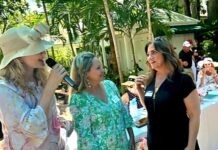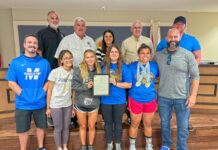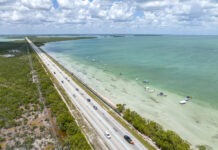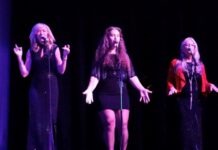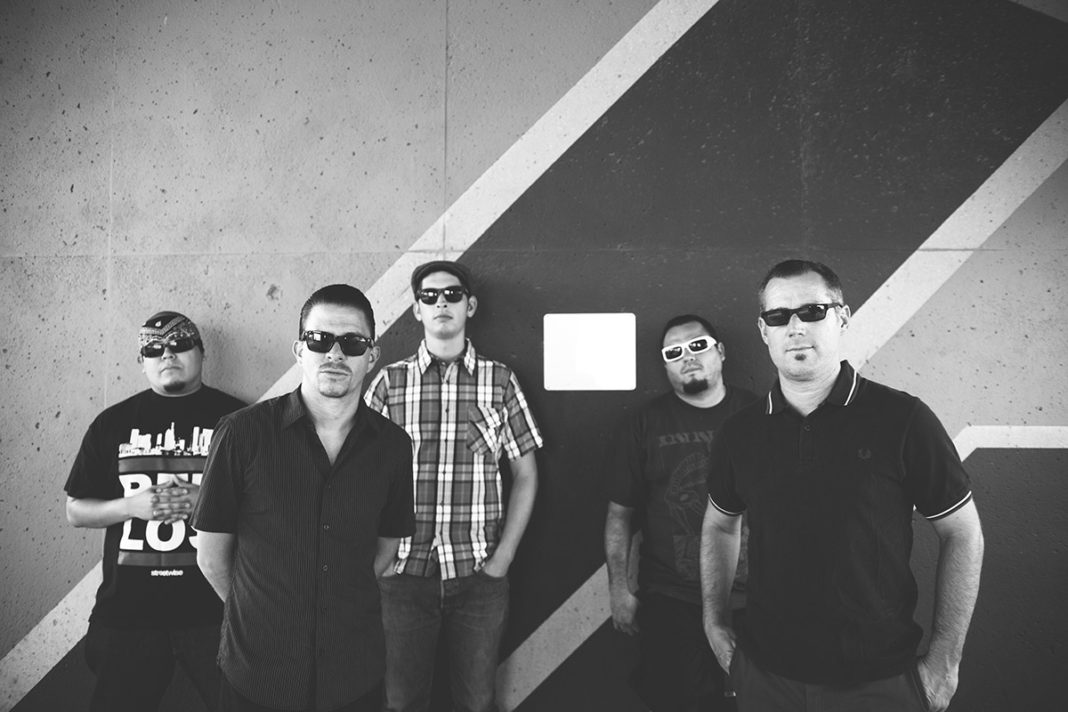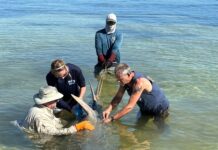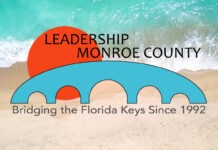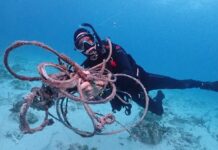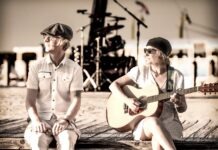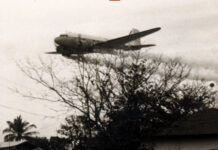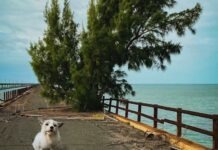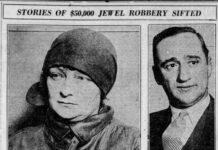The Southern California music scene of the ’90s and early ’00s has become an iconic moment in time for ska, punk and reggae. Counterculture genre-bending band Sublime has since become mainstream, after the untimely death and cult-like status of famed front man Bradley Nowell. The band, with new members, reformed as the Long Beach Dub Allstars, and around the same time and in the same region, other musicians who took good times very seriously came together to play backing for reggae legend Derrick Morgan. That group would become the Aggrolites, a feel good reggae band — which also blends ska, punk, jam and rocksteady to bring funky fresh sounds to California and the world. This week, they bring it to Sunset Pier.
With foot-thumping, bass-pumping songs like “Free Time” and “Pound for Pound,” their draw has reached far beyond the California coastline. We caught up with Aggrolites lead singer Jesse Wagner about the genre they call “Dirty Reggae” (also the title of one of their albums) and how the Key West scene intersects with their mission. Oh yeah, and that one gig they had on Yo! Gabba Gabba when they were just a bunch of crazy kids making music.
KW: How would you define your style, which seems to skirt a few different genres?
JW: Dirty Reggae is what we call it and how do we define it. We’ve always liked that old-school early 1969-1972 era of reggae music out of Jamaica, that gritty sound. From Studio One to Treasure Isle, to (Jamaican producer) Lee Perry. They recorded all of that stuff live in a room, and nothing was overdubbed, there are no Pro Tools or anything digital. I think those little flaws in the sound are little tidbits that make the song better. Sometimes you look for those bad notes in tunes. That’s what dirty reggae is. We wanted to make our sound the OG way. The grittiness, the sour notes … sometimes, that’s the best part.
KW: What do you see as unique about the Key West music scene?
JW: I’m not really familiar with Key West, though we played in Florida years ago. I see that it’s a party scene, and hopefully people like to dance and get out there. We’re just excited to come out to Key West to make people dance, make people get down. We’re not coming to prove something; we want to go out and have a good time and party.
KW: You formed as backing for Derrick Morgan. How did his reggae influence you?
JW: We backed up Derrick Morgan a few times as a backing band, and there was an opportunity to make a record with him, which ultimately fell through the cracks. That guy was one of the first Jamaican superstars, back in the ska days before the Wailers and everything. He lasted through the rocksteady era and the reggae era. Our guitar player Brian Dixon got with him, and he did a ska section and a reggae section, and that’s how we formed the Aggrolites. That was the beginning.
KW: How does the culture of Southern California inform and inspire the music?
JW: The cheesy answer to it is that it’s like an island town, being on the coast line with the beaches. Of course, the East Coast is a lot more spoiled than the West Coast, because they have more Jamaican immigrants. What’s cool is, it all started in a little speck, in Kingston, and it’s an art that’s spread throughout the entire world. They were singing about social issues that were going on in their towns, and they were going on in our towns too. The East Coast, to the working classes in the U.K.
KW: Do you also take up social issues in your music?
JW: We’re inspired by the old-school 1969 reggae, and it was informed by Motown. A lot of it was party music. A lot of it goes along with the Rastafarian religion and influence, but the early reggae and rocksteady is a lot of love songs and party grooves. We aren’t as much roots reggae. Bob Marley was picked as a person to speak the Rastafarian religion for the world, but before all that there was just reggae, grooves and chilling and talking about what’s going on. We’re a party band, and we don’t get too serious — until we do get serious. We make feel good music.
KW: How did you end up on Yo Gabba Gabba back in the day?
JW: (Wagner laughs.) That was 2007. Yo Gabba Gabba, who is actually named Christian Jacobs, is the lead singer of the Aquabats. Wait, actually that was 2005. We did a U.S. tour with the Aquabats, and the song “Banana” is a cover song that we always did. Christian said, “I can’t talk about it now, but I have a TV show in the works, and I want you guys to sing on it, and it’s going to air across the world.” It was Yo Gabba Gabba, and so we went on and did the “Banana” song. It was cool—it’s like “The Muppets” of today.
KW: It sounds like you use a variety of instruments — how do you try to diverge from traditional reggae?
JW: We play the bagpipes, the kalimba, the skin flute … just kidding. We do basic bass, guitar, piano, organ and drums. But we do experiment with different sounds and things, which is what you hear.
KW: Our island’s motto is “One Human Family.” If your band had a motto, what would it be?
JW: That’s actually really rad. Ours would probably be “Dirty Reggae,” but “One Human Family?” Now, that’s poetic.
Long Beach Dub Allstars with
The Aggrolites and Mike Pinto
Sunset Pier
0 Duval Street
Tuesday, July 16 at 6 p.m.



